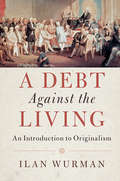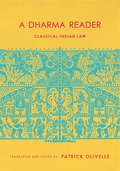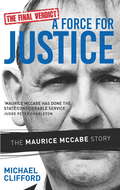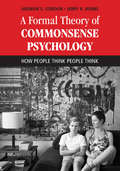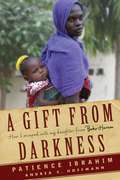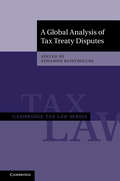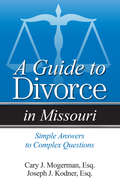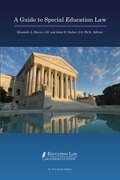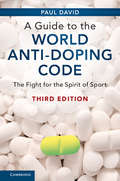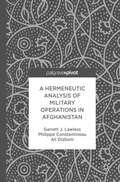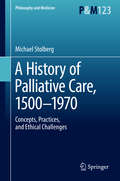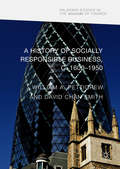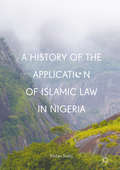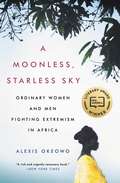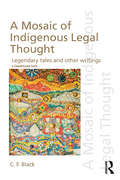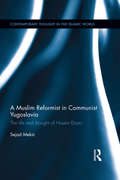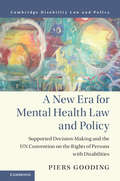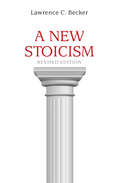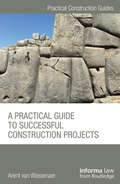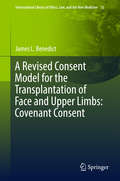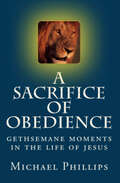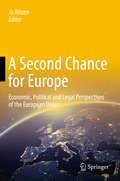- Table View
- List View
A Debt Against the Living: An Introduction to Originalism
by Ilan WurmanThomas Jefferson famously wrote that the earth belongs to the living. His letter to James Madison is often quoted for the proposition that we should not be bound to the 'dead hand of the past', suggesting that the Constitution should instead be interpreted as a living, breathing document. Less well-known is Madison's response, in which he said the improvements made by the dead - including the US Constitution - form a debt against the living, who benefit from them. In this illuminating book, Ilan Wurman introduces Madison's concept of originalism to a new generation and shows how it has shaped the US Supreme Court in ways that are expected to continue following the death of Justice Antonin Scalia, one of the theory's leading proponents. It should be read by anyone seeking a better understanding of originalism and its ongoing influence on the constitutional jurisprudence of the Supreme Court.
A Dharma Reader: Classical Indian Law (Historical Sourcebooks in Classical Indian Thought)
by Patrick OlivelleWhether defined by family, lineage, caste, professional or religious association, village, or region, India's diverse groups did settle on a concept of law in classical times. How did they reach this consensus? Was it based on religious grounds or a transcendent source of knowledge? Did it depend on time and place? And what apparatus did communities develop to ensure justice was done, verdicts were fair, and the guilty were punished?Addressing these questions and more, A Dharma Reader traces the definition, epistemology, procedure, and process of Indian law from the third century B.C.E. to the middle ages. Its breadth captures the centuries-long struggle by Indian thinkers to theorize law in a multiethnic and pluralist society. The volume includes new and accessible translations of key texts, notes that explain the significance and chronology of selections, and a comprehensive introduction that summarizes the development of various disciplines in intellectual-historical terms. It reconstructs the principal disputes of a given discipline, which not only clarifies the arguments but also relays the dynamism of the fight. For those seeking a richer understanding of the political and intellectual origins of a major twenty-first-century power, along with unique insight into the legal interactions among its many groups, this book offers exceptional detail, historical precision, and expository illumination.
A Force for Justice: The Maurice McCabe Story
by Michael CliffordTHE UPDATED BESTSELLERSergeant Maurice McCabe never set out to be a whistleblower. When, in 2008, he complained of shoddy investigations into serious crime in County Cavan, nothing could have prepared him for what was in store.For exposing gross incompetence and corruption within An Garda Síochána, he endured vilification, bullying and harassment by forces who wanted to bury him and his inconvenient truths. Worse still were the vicious rumours and falsehoods, which had a devastating effect on his whole family.Their painful journey to vindication was only completed in October 2018, with the publication of the Disclosures Tribunal report, which revealed how ex-Garda Commissioner Martin Callinan and Superintendent Dave Taylor had conducted a campaign of 'calumny' against 'an officer of exemplary character'. From the award-winning journalist who first broke the story, A Force for Justice is the definitive account of the greatest scandal ever to emerge from the Irish police force, and the personal price paid by Maurice McCabe in pursuit of his duty to serve the state.
A Formal Theory of Commonsense Psychology: How People Think People Think
by Andrew S. Gordon Jerry R. HobbsCommonsense psychology refers to the implicit theories that we all use to make sense of people's behavior in terms of their beliefs, goals, plans, and emotions. These are also the theories we employ when we anthropomorphize complex machines and computers as if they had humanlike mental lives. In order to successfully cooperate and communicate with people, these theories will need to be represented explicitly in future artificial intelligence systems. This book provides a large-scale logical formalization of commonsense psychology in support of humanlike artificial intelligence. It uses formal logic to encode the deep lexical semantics of the full breadth of psychological words and phrases, providing fourteen hundred axioms of first-order logic organized into twenty-nine commonsense psychology theories and sixteen background theories. This in-depth exploration of human commonsense reasoning for artificial intelligence researchers, linguists, and cognitive and social psychologists will serve as a foundation for the development of humanlike artificial intelligence.
A Gift from Darkness
by Andrea Claudia Hoffmann Patience IbrahimThe inspirational story of a pregnant young Nigerian woman and the horrors she endured to save her unborn child when she was kidnapped by Boko Haram.When she was nineteen, Patience Ibrahim's first husband was murdered by Boko Haram. She fled to the safety of her village and remarried several months later. Having prayed for a child for years, Patience is overjoyed when she discovers she is pregnant. But her joy is short-lived: Boko Haram soldiers are at her door. Brutally abducted and forced to convert to Islam, she lives in constant terror of what her kidnappers have in store for her. She finds herself alone in the world and fears her life is over. For two months, Patience hides her pregnancy while facing the brutalities meted out by Boko Haram. By the sheer force of her determination to protect her baby, she and her child are able to survive. Now, she has entrusted journalist Andrea C. Hoffmann with her story, a powerful first-person account of Boko Haram's atrocities in Nigeria and Cameroon.One of the first testimonies on the terrorist group's war crimes in Western Africa, A Gift from Darkness poignantly shows the human toll of a crisis that demands attention.
A Global Analysis of Tax Treaty Disputes (Cambridge Tax Law Series)
by Eduardo BaistrocchiThis two-volume set offers an in-depth analysis of the leading tax treaty disputes in the G20 and beyond within the first century of international tax law. Including country-by-country and thematic analyses, the study is structured around a novel global taxonomy of tax treaty disputes and includes an unprecedented dataset with over 1500 leading tax treaty cases. By adopting a contextual approach the local expertise of the contributors allows for a thorough and transparent analysis. This set is an important reference tool for anyone implementing or studying international tax regulations and will facilitate the work of courts, tax administrations and practitioners around the world. It is designed to complement model conventions such as the OECD Model Tax Convention on Income and on Capital. Together with Resolving Transfer Pricing Disputes (2012), it is a comprehensive addition to current debate on the international tax law regime. Provides law-in-context analysis of the international tax regime, with contributions from authors working in numerous jurisdictions Features country-by-country and topic-by-topic analyses of leading tax treaty disputes Includes a comprehensive dataset of over 1,500 leading tax treaty disputes as supplementary material
A Guide to Divorce in Missouri: Simple Answers to Complex Questions (Divorce In)
by Cary J. Mogerman Joseph J KodnerProviding accurate and objective information to help make the right decisions during a divorce in Missouri, this guide provides answers to 360 queries such as What is the mediation process in Missouri and is it required? How quickly can one get a divorce? Who decides who gets the cars, the pets, and the house? What actions might influence child custody? How are bills divided and paid during the divorce? How much will a divorce cost? and Will a spouse have to pay some or all attorney fees? Structured in a question-and-answer format, this divorce handbook provides clear and concise responses to help build confidence and give the peace of mind needed to meet the challenges of a divorce proceeding.
A Guide to Special Education Law
by Janet R. Decker Elizabeth A. ShaverNew text pools the experience and expertise of special education legal experts from across the U.S. into one valuable resource. In their current roles as special education attorneys and university professors, the authors navigate the complex maze of federal and state legislation, regulations, and case law. They also must stay abreast of constant changes.The authors provide a clear and concise explanation of the current status of special education law. Importantly, they translate the law for those who do not have a legal background. Each chapter also offers practical recommendations. By heeding the authors’ useful guidance, special education directors, teachers, paraprofessionals, parents, and others will be better prepared to address the many legal dilemmas they face.
A Guide to the World Anti-Doping Code: The Fight for the Spirit of Sport
by Paul DavidThe law relating to anti-doping changes rapidly. The World Anti-Doping Code was first adopted in 2003 to provide a common set of anti-doping rules applicable across all sport worldwide. The Code has evolved and changed significantly through two major processes of review. This third edition provides essential guidance and commentary on the 2015 Code which replaces the 2009 Code. The 2015 Code contains many significant changes in the core Articles of the Code, particularly in the regime on sanctions for anti-doping rule violations, and in the amended International Standards. The text outlines how the current law has developed from anti-doping rules and principles in operation before the Code and explains the central role of the Court of Arbitration for Sport in this development and in applying the current Code. This third edition will be an important single resource for any reader working or studying in the field.
A Hermeneutic Analysis of Military Operations in Afghanistan
by Garrett J. Lawless Philippe Constantineau Ali DizboniThis book introduces the field of hermeneutics through a critique of military operations in Afghanistan. Following a brief survey of modern political history of the country, the authors examine the link between cultural factors and the inefficiency of nation-building operations. Additionally, the project discusses contending academic approaches to culture, and identifies shortcomings in their theoretical propositions for military operations in failed states. Ultimately, this volume contextualizes the evolution of hermeneutical thinking and the benefits it provides in assessing the transformation of culture through military intervention.
A History of Human Rights Society in Singapore: 1965-2015 (Politics in Asia)
by Jiyoung SongTo celebrate Singapore’s fiftieth anniversary for its independence from Malaysia in 2015, 35 students, academics and activists came together to discuss and write about pioneering Singaporean human rights activists and their under-reported stories in Singapore. The city-state is known for its remarkable economic success while having strict laws on individual freedom in the name of national security, public order and racial harmony. Singapore’s tough stance on human rights, however, does not negate the long and persistent existence of a human rights society that is little known to the world until today. This volume, composed of nine distinctive chapters, records a history of human rights activists, their campaigns, main contentions with the government, survival strategies and other untold stories in Singapore’s first 50 years of state-building.
A History of Law in Europe: From the Early Middle Ages to the Twentieth Century
by Antonio Padoa-SchioppaWith its roots in ancient Greece, Roman law and Christianity, European legal history is the history of a common civilisation. The exchange of legislative models, doctrines and customs within Europe included English common law and has been extensive from the early middle ages to the present time. In this seminal work which spans from the fifth to the twentieth century, Antonio Padoa-Schioppa explores how law was brought to life in the six main phases of European legal history. By analysing a selection of the institutions of private and public law which are most representative of each phase and of each country, he also sheds light on the common features throughout the history of European legal culture. Translated in English for the first time, this new edition has been revised to include the recent developments of the European Union and the legal-historical works of the last decade.
A History of Palliative Care, 1500-1970: Concepts, Practices, and Ethical challenges (Philosophy and Medicine #123)
by Michael StolbergThis book on the history of palliative care, 1500-1970 traces the historical roots of modern palliative care in Europe to the rise of the hospice movement in the 1960s. The author discusses largely forgotten premodern concepts like cura palliativa and euthanasia medica and describes, how patients and physicians experienced and dealt with terminal illness. He traces the origins of hospitals for incurable and dying patients and follows the long history of ethical debates on issues like truth-telling and the intentional shortening of the dying patients' lives and the controversies they sparked between physicians and patients. An eye opener for anyone interested in the history of ethical decision making regarding terminal care of critically ill patients.
A History of Socially Responsible Business, c.1600–1950
by David Chan Smith William A PettigrewThis book examines the changing reciprocal relationships between corporations and their various social obligations over the very long term - from the seventeenth to the twentieth century. Chapters from emerging and established business historians assess the full range of social obligations that corporations held historically. By adopting an innovative methodological approach that is long-term and comparative, this book offers a challenge to the literature on corporate history and will be of interest to researchers and academics in the field of finance and business history.
A History of the Application of Islamic Law in Nigeria
by Yushau SodiqThis work analyzes the history of the application of Islamic law (Shari`ah) in Nigeria. It analyzes how Islamic law emerged in Nigeria toward the beginning of the 19th century and remained applicable until the arrival of the British Colonial regime in Northern Nigeria in 1903. It sheds light on how the law survived colonial rule and continues until today. Dr. Yushau Sodiq analyzes progressive elements in Islamic law over the past two centuries. He goes on to discuss many objections raised by the Nigerian Christians against the application of Islamic law, as well as how Muslims respond to such criticism. In a world that is often saturated with Islamophobia and ignorant misconceptions about Islam, this book aims to clarify and respond to many important concepts and ideas within Islamic religious tradition.
A Moonless, Starless Sky: Ordinary Women and Men Fighting Extremism in Africa
by Alexis Okeowo"Absolutely essential reading, period."---Alexandra Fuller, bestselling author of Don't Let's Go to the Dogs Tonight In the tradition of Behind the Beautiful Forevers, this is a masterful, humane work of literary journalism by New Yorker staff writer Alexis Okeowo--a vivid narrative of Africans who are courageously resisting their continent's wave of fundamentalism.In A Moonless, Starless Sky Okeowo weaves together four narratives that form a powerful tapestry of modern Africa: a young couple, kidnap victims of Joseph Kony's LRA; a Mauritanian waging a lonely campaign against modern-day slavery; a women's basketball team flourishing amid war-torn Somalia; and a vigilante who takes up arms against the extremist group Boko Haram. This debut book by one of America's most acclaimed young journalists illuminates the inner lives of ordinary people doing the extraordinary--lives that are too often hidden, underreported, or ignored by the rest of the world.
A Mosaic of Indigenous Legal Thought: Legendary Tales and Other Writings
by C.F. BlackThis book offers an Indigenous supplement to the rich and growing area of visual legal scholarship. Organized around three narratives, each with an associated politico-poetic reading, the book addresses three major global issues: climate change, the trade in human body parts and bio-policing. Manifesting and engaging the traditional storytelling mode of classical Indigenous ontology, these narratives convey legal and political knowledge, not merely through logical argument, but rather through the feelings of law and the understanding of lawful behaviour produced by their rhythm. Through its own performativity, therefore, the book demonstrates how classical Indigenous legal traditions remain vital to the now pressing challenge of making peace with the earth.
A Muslim Reformist in Communist Yugoslavia: The Life and Thought of Husein Đozo (Contemporary Thought in the Islamic World)
by Sejad MekićA Muslim Reformist in Communist Yugoslavia examines the Islamic modernist thought of Husein Đozo, a prominent Balkan scholar. Born at a time when the external challenges to the Muslim world were many, and its internal problems both complex and overwhelming, Đozo made it his goal to reinterpret the teachings of the Qur’an and hadīth (prophetic tradition) to a generation for whom the truths and realities of Islam had fallen into disuse. As a Muslim scholar who lived and worked in a European, communist, multi-cultural and multi-religious society, Husein Đozo and his work present us with a particularly exciting account through which to examine the innovative interpretations of Islam. <p><P>For example, through a critical analysis of Đozo’s most significant fatwās and other relevant materials, this book examines the extent of the inherent flexibility of the Islamic law and its ability to respond to Muslim interests in different socio-political conditions. Since Đozo’s writings in general and his fatwās in particular have continued to be published in the Balkan lands up to the present, this monograph should help shed some light on certain assumptions underlying modern Islamic thought and consciousness found in the region.
A New Deal for China’s Workers?
by Cynthia EstlundChina’s leaders aspire to the prosperity, political legitimacy, and stability that flowed from America’s New Deal, but they are irrevocably opposed to the independent trade unions and mass mobilization that brought it about. Cynthia Estlund’s crisp comparative analysis makes China’s labor unrest and reform legible to Western readers.
A New Era for Mental Health Law and Policy: Supported Decision-Making and the UN Convention on the Rights of Persons with Disabilities (Cambridge Disability Law and Policy Series)
by Piers GoodingThe Convention on the Rights of Persons with Disabilities (CRPD) has generated new ideas and standards in healthcare and disability law and policy. In the mental health context, the CRPD directs governments to ensure people with mental impairments are treated equally before the law, including ensuring people have access to the resources necessary to enjoy their rights. But what this means in practice remains unclear. In addition, current domestic laws that authorise involuntary psychiatric interventions stand at cross-purposes with the CRPD, which requires respect for the 'will, preference and rights' of persons with disabilities 'on an equal basis with others'. This book explores the implications of the CRPD for law, policy and practice that responds to the complex issues raised by mental health impairment and disability. It argues that the support framework of the CRPD holds potential to address persistent shortcomings in mental health law and policy. Proposes a new approach to mental health and the law Promotes the application of international human rights law to mental health law, policy and practice Considers new solutions to longstanding problems regarding coercive mental health treatment
A New Stoicism
by Lawrence C. BeckerWhat would stoic ethics be like today if stoicism had survived as a systematic approach to ethical theory, if it had coped successfully with the challenges of modern philosophy and experimental science? A New Stoicism proposes an answer to that question, offered from within the stoic tradition but without the metaphysical and psychological assumptions that modern philosophy and science have abandoned. Lawrence Becker argues that a secular version of the stoic ethical project, based on contemporary cosmology and developmental psychology, provides the basis for a sophisticated form of ethical naturalism, in which virtually all the hard doctrines of the ancient Stoics can be clearly restated and defended. Becker argues, in keeping with the ancients, that virtue is one thing, not many; that it, and not happiness, is the proper end of all activity; that it alone is good, all other things being merely rank-ordered relative to each other for the sake of the good; and that virtue is sufficient for happiness. Moreover, he rejects the popular caricature of the stoic as a grave figure, emotionally detached and capable mainly of endurance, resignation, and coping with pain. To the contrary, he holds that while stoic sages are able to endure the extremes of human suffering, they do not have to sacrifice joy to have that ability, and he seeks to turn our attention from the familiar, therapeutic part of stoic moral training to a reconsideration of its theoretical foundations.
A Practical Guide to Successful Construction Projects (Practical Construction Guides)
by Arent van WassenaerWritten by experienced and innovative projects lawyer Arent van Wassenaer, this book explains what the critical success factors are for construction projects to be completed on time, within everyone’s budget, to the right quality, with all stakeholders satisfied and without disputes. In so doing, van Wassenaer discusses how such projects could be structured, tendered for, executed and completed, and what legal and non-legal mechanisms are available to achieve success in construction projects. Using examples of real projects, A Practical Guide to Successful Construction Projects provides tools for those in leading and managerial positions within the construction industry to change – where necessary – their usual operational methods into methods which are aimed at achieving project success.
A Revised Consent Model for the Transplantation of Face and Upper Limbs: Covenant Consent (International Library of Ethics, Law, and the New Medicine #73)
by James L. BenedictThis book supports the emerging field of vascularized composite allotransplantation (VCA) for face and upper-limb transplants by providing a revised, ethically appropriate consent model which takes into account what is actually required of facial and upper extremity transplant recipients. In place of consent as permission-giving, waiver, or autonomous authorization (the standard approaches), this book imagines consent as an ongoing mutual commitment, i. e. as covenant consent. The covenant consent model highlights the need for a durable personal relationship between the patient/subject and the care provider/researcher. Such a relationship is crucial given the recovery period of 5 years or more for VCA recipients. The case for covenant consent is made by first examining the field of vascularized composite allotransplantation, the history and present understandings of consent in health care, and the history and use of the covenant concept from its origins through its applications to health care ethics today. This book explains how standard approaches to consent are inadequate in light of the particular features of facial and upper limb transplantation. In contrast, use of the covenant concept creates a consent model that is more appropriate ethically for these very complex surgeries and long-term recoveries.
A Sacrifice of Obedience: Gethsemane Moments in the Life of Jesus
by Michael PhillipsThe Christian author and George MacDonald biographer shares an enlightening meditation on the need for sacrifice in contemporary Christianity.Michael Phillips began writing A Sacrifice of Obedience in 2002, more than a decade before it was published. As the world moved further into the twenty-first century, the message of his book took on a more profound urgency. Christians everywhere—including Phillips himself—seem resistant the imperatives of sacrifice and obedience. Yet they remain the bull’s eye of the Christian faith. Now, after revisiting and expanding on his original manuscript, Phillips shares his candid and perceptive thoughts on the difficult yet deeply rewarding life all Christians are called to live.
A Second Chance for Europe: Economic, Political and Legal Perspectives of the European Union
by Jo RitzenThis book calls upon us to rethink and reboot the European Union. The authors dissect the EU's many vulnerabilities: how some Member States are backsliding on the rule of law, freedom of the press, and control of corruption - and how globalization's 'discontents' are threatening the liberal international order. It examines the need for a common immigration policy; the need to rethink the unsustainable debt overhang of some Eurozone countries; and the need to use education to foster a European identity. Given the sum total of these vulnerabilities, the book argues, the EU may not survive beyond 2025 in its present form - that is, unless decisive action is taken. In turn, the book puts forward a number of workable solutions: a European economic model to secure full employment; a stronger European Court of Human Rights to counter systemic violations; a points-based immigration policy; clear exit options for the Eurozone; and an Open Education Area with a common second language. These solutions may reduce the number of EU countries, but would increase cohesion and overall survivability.
